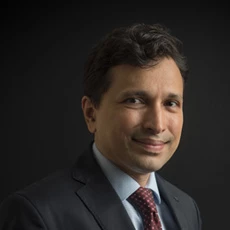-
Our Products
Our FundsOur High Return Funds
-
Self Care
Self-ServiceFind InformationWays To TransactPartner Solutions
-
Downloads
- Learnings
- About Us
-
More
-
Shareholders
-
Shareholders
-
Updates
-
-
Wealth Calculator
- Back
-
Shareholders
ABC Solution 

Loans
Insurance
Aditya Birla Sun Life AMC Limited
Aditya Birla Sun Life AMC Limited
Enter your details to visit our Metaverse

Enter valid first name
Enter valid last name
Enter valid email
+91
Enter valid mobile number
Enter valid otp detail
Select internet speed
Select privacy policy
Form Error
- Personal
-
Corporates
-
-
Advisors
-
Protecting
Financing
Advising
-
- Careers
- Mutual funds
-
Our Products
-
Our Funds
- All Funds
- Our Unique Solutions
- Our High Return Funds
- Aditya Birla Sun Life PSU Equity Fund
- Aditya Birla Sun Life Nifty Smallcap 50 Index Fund
- Aditya Birla Sun Life Pure Value Fund
- Aditya Birla Sun Life Infrastructure Fund
- Aditya Birla Sun Life Pharma and Healthcare Fund
- Aditya Birla Sun Life Small Cap Fund
- Aditya Birla Sun Life Midcap Fund
-
Solutions & Categories
-
-
Self Care
-
Self-Service
-
Find Information
-
Ways To Transact
Contact Us
1-800-270-7000 within india | +91-080-45860777 outside india | care.mutualfunds@adityabirlacapital.com -
- Downloads
- Learnings
- About Us
- Calculator
- Shareholders
-
Our Products
-
Our Funds
- All Funds
- Our Unique Solutions
- Our High Return Funds
- Aditya Birla Sun Life PSU Equity Fund
- Aditya Birla Sun Life Nifty Smallcap 50 Index Fund
- Aditya Birla Sun Life Pure Value Fund
- Aditya Birla Sun Life Infrastructure Fund
- Aditya Birla Sun Life Pharma and Healthcare Fund
- Aditya Birla Sun Life Small Cap Fund
- Aditya Birla Sun Life Midcap Fund
-
Solutions & Categories
-
-
Self Care
-
Self-Service
-
Find Information
-
Ways To Transact
Contact Us
-
-
Downloads
-
Learnings
-
About Us
-
Calculator
- Shareholders
Aditya Birla Sun Life AMC Limited
7 things to look at before you invest in Mutual Funds
Oct 02, 2017
5 mins | Views 45
Maybe you’ve done a bit of research and are now interested in putting your money into one of the investment avenues available in the market today. But the sheer number of mutual fund schemes is overwhelming, and you’re confused about which mutual fund scheme to put your hard-earned money into.
If you’re just getting started, here are seven things to look at as a new investor to make your mutual fund investments work: equity mutual funds- Now there are different types of mutual funds and every fund type calls for a different investment time frame. When you’re picking a mutual fund, you need to evaluate how long your money can stay invested in the scheme.
For example, equity mutual funds should be given longer time frame than debt mutual funds. It’s advised that you pick the mutual fund scheme that fits your time requirements.
Why’s the time horizon important?
Because most of the mutual fund seeks to generate reasonable returns depending on how long the money is invested for. If your time horizon doesn’t align with the mutual fund’s strategy, then you may end up with less-than-expected potential returns or even losses
- It’s important to match your risk profile with that of the objective of the fund. Don’t invest in a particular mutual fund scheme just because your friend or family member did. Their risk appetite may be quite different from yours.
- It’s critical for you to set your investment goal or objective. Why do you want to put your money in a mutual fund? Is it for a second home? Is it for retirement? Is it for wealth creation?
Listing your investment objectives will help you determine how much risk you can take, how long you can stay invested for, and which fund best matches your needs.
- Your investment goals define your time horizon, which helps you select the type of scheme. Remember, every mutual fund scheme reacts differently to market conditions. Equity funds, for example, usually see greater fluctuation in returns due to movements in the market as opposed to debt funds.
- A mutual fund scheme typically offers three investment options under Regular Plan and Direct Plan:
Dividend Reinvestment, Growth and Dividend Payout. A dividend is a share of your NAV that the
fund pays you at a regular interval which is subject to the approval of trustees and availability of
distributable profit. When you choose Growth, you will not get any returns in the intermediate or
dividends during the period of investment. Dividend Payout lets you receive the dividends at
periodic intervals and Dividend Reinvestment lets you reinvest those dividends in the mutual fund.
Which option you choose will determine your overall potential returns. - Equity and debt mutual funds both have different tax implications. For example, equity linked saving schemes or ELSS mutual funds (a type of equity funds) allow the investor to save up to Rs. 1.50 lakh under Section 80C of the Income Tax Act. Debt funds, on the other hand, attract tax depending on the tenure of investment. When you’re picking a mutual fund, always remember to compare the post-tax returns.
- Mutual funds have certain charges known as loads. The Securities and Exchange Board of India has now made it mandatory to not charge an entry load when you’re buying a mutual fund. On the other hand, an exit load fee is charged when you redeem your investment, typically prior to a defined time period.
Time horizon
Risk evaluation
What’s your investment objective?
Fund type
Choosing the right option in a scheme
Tax implications
Charges
There are several other checks that you need to undertake, such as track record, understanding the several different types of funds out there in the market, and more before you decide to put your money in a mutual fund.
However, the points mentioned above are a good starting point to help you potentially reap the benefits from your mutual fund investments.
Mutual Fund investments are subject to market risks, read all scheme related documents carefully.
Rate this
Rate this Article
 Our Experts
Our Experts
 Tools and Calculator
Tools and Calculator
 RSS News Feed
RSS News Feed
 Archives
Archives
Close
Hover to Zoom




 1800-270-7000
1800-270-7000













Thank You
Message will change according to your requirement.